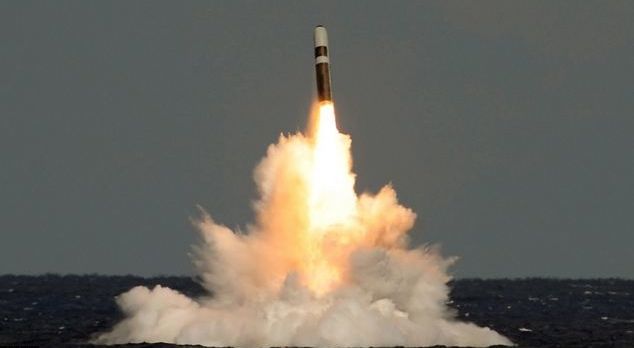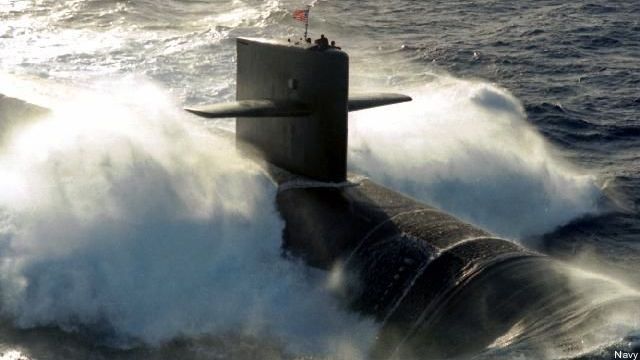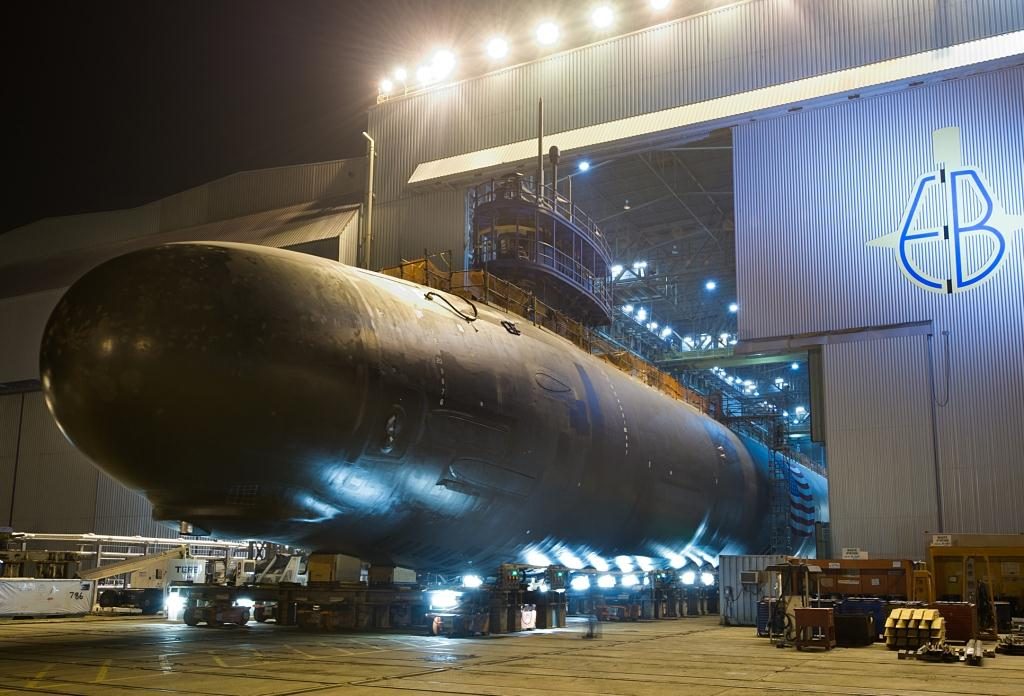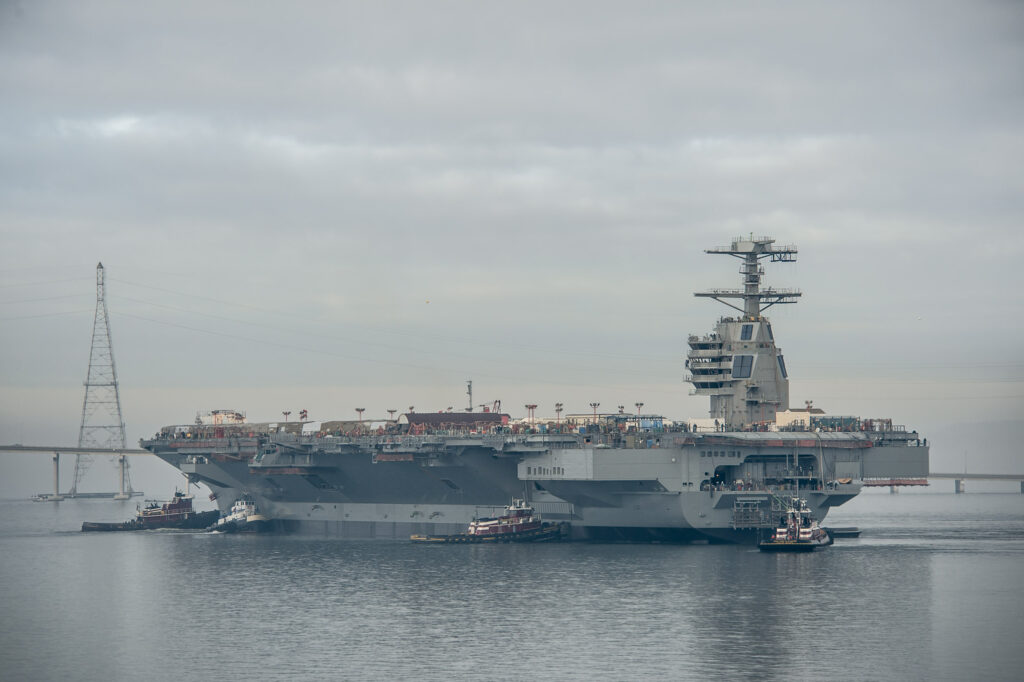LRS-B, Next Boomer May Force Weapons Cuts
Posted on
WASHINGTON: It won’t happen tomorrow, but the Pentagon may have to start eating its young to pay for two of the most expensive weapons in US history: the Air Force’s Long Range Strike bomber and the Navy’s replacement for the Ohio class nuclear missile submarine. That’s the estimation of Todd Harrison, the top budget expert… Keep reading →
A Second Chance on Nuclear Modernization
Posted on
The DC debate on the Navy’s new nuclear missile submarines has been about how we can possibly pay for them. In this op-ed, however, frequent Breaking Defense contributor Bob Butterworth takes a step back to look at a much bigger picture. The Navy’s recent admission that it can’t afford the Ohio Replacement Program (ORP) is… Keep reading →
‘My Last Ship Was Older Than I Was’: Sailor Quizzes SecDef On New SSBNs
Posted on
KINGS BAY NAVAL SUBMARINE BASE, GEORGIA: Defense Secretary Chuck Hagel came here Wednesday to celebrate the Navy’s nuclear deterrence force. But just 20 minutes in, a petty officer second class stood up in front of almost 200 of his comrades and pointed out the $95 billion elephant in the room: Can the Navy afford to… Keep reading →
Navy Finally Admits It Can’t Afford Fleet, Esp. New SSBNs
Posted on
WASHINGTON: “Unsustainable.” That’s the Navy’s own official assessment of the spending rates required to keep the fleet large and modern enough to do its missions. For the service to state this in writing ratchets up not just the rhetoric but the likelihood of future budget battles in the Pentagon and on the Hill — especially… Keep reading →
Fading Solid Fuel Engine Biz Threatens Navy’s Trident Missile
Posted on
CAPITOL HILL: “Failure to launch” isn’t a metaphorical concern when you work on nuclear weapons. That’s why the director of the Navy’s euphemistically named Strategic Systems Program (SSP) is a worried man. What has Vice Adm. Terry Benedict worried is something neither he, nor the Navy nor the entire Defense Department directly control. It’s the… Keep reading →
Navy Sub Program Stumbles: SSN North Dakota Delayed By Launch Tube Troubles
Posted on
Problems with a new kind of missile launcher will delay the commissioning of the attack submarine North Dakota, the Navy announced this afternoon. That’s a significant stumble for the Virginia-class submarine program, whose steadily decreasing costs and construction time per boat have become a point of pride for the Navy and shipbuilder Electric Boat alike.… Keep reading →
Navy Seeks Sub Replacement Savings: From NASA Rocket Boosters To Reused Access Doors
Posted on
NATIONAL HARBOR: This is rocket science. As the US Navy tries to keep its crucial 1990-vintage Trident D5 nuclear-capable missile viable for decades to come, it’s working with everyone from the Royal Navy to the US Air Force to NASA to keep costs down and technology up to date. Meanwhile, the design team for the… Keep reading →
A Better Fleet: Scrap LCS, Double Virginia Sub Buy & Move Design Back To Navy
Posted on
The US Navy needs more ships. The United States cannot protect the world’s sealanes, let alone “pivot to the Pacific,” if we further downsize our military. Especially given other nations’ growing anxiety about whether the US will still shoulder the leadership role of protecting them, the Navy must grow, not become smaller. Yes, individual ships… Keep reading →
Cut Carriers To Save Subs, Cyber From Sequester, Thinktanks Say
Posted on
THE WHITE HOUSE SITUATION ROOM, CA. 2025: “Where are the carriers?” “In the scrapyard, Mr. President. How about some submarines?” That’s a parody, not a projection. But this hypothetical future isn’t that far off from what experts from four top thinktanks — AEI, CNAS, CSBA, and CSIS — presented this morning as the “least unacceptable”… Keep reading →
Nuclear Cheating Scandal Hits Navy; Not Like Air Force’s, Say Admirals
Posted on
WASHINGTON: It looks like the scum of scandals that’s afflicted the Air Force nuclear program has spread to the Navy — although top admirals took pains today to emphasize how different the two problems are. In both cases, military personnel cheated on exams to requalify so they could continue to work with nuclear materials. The… Keep reading →







